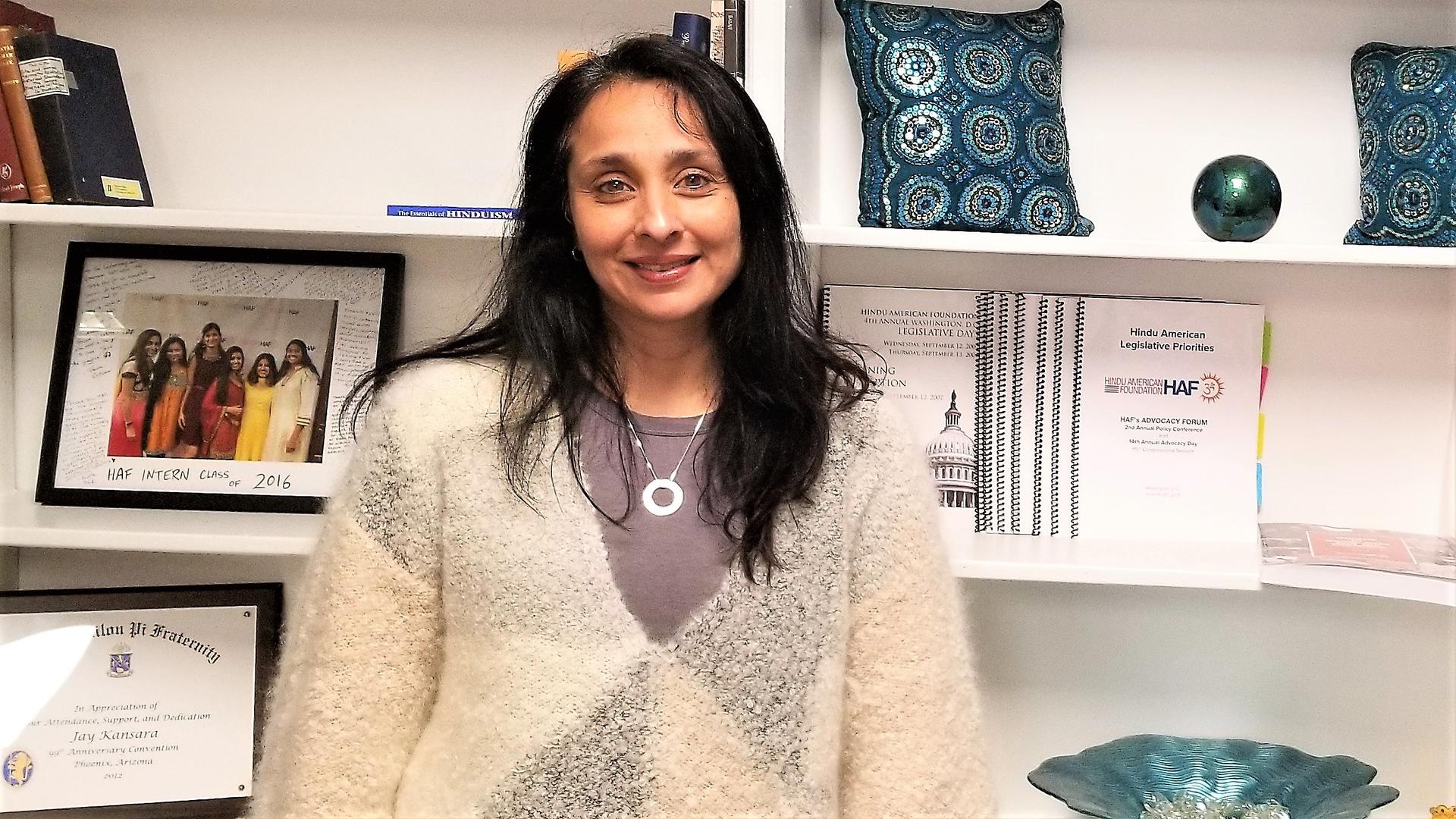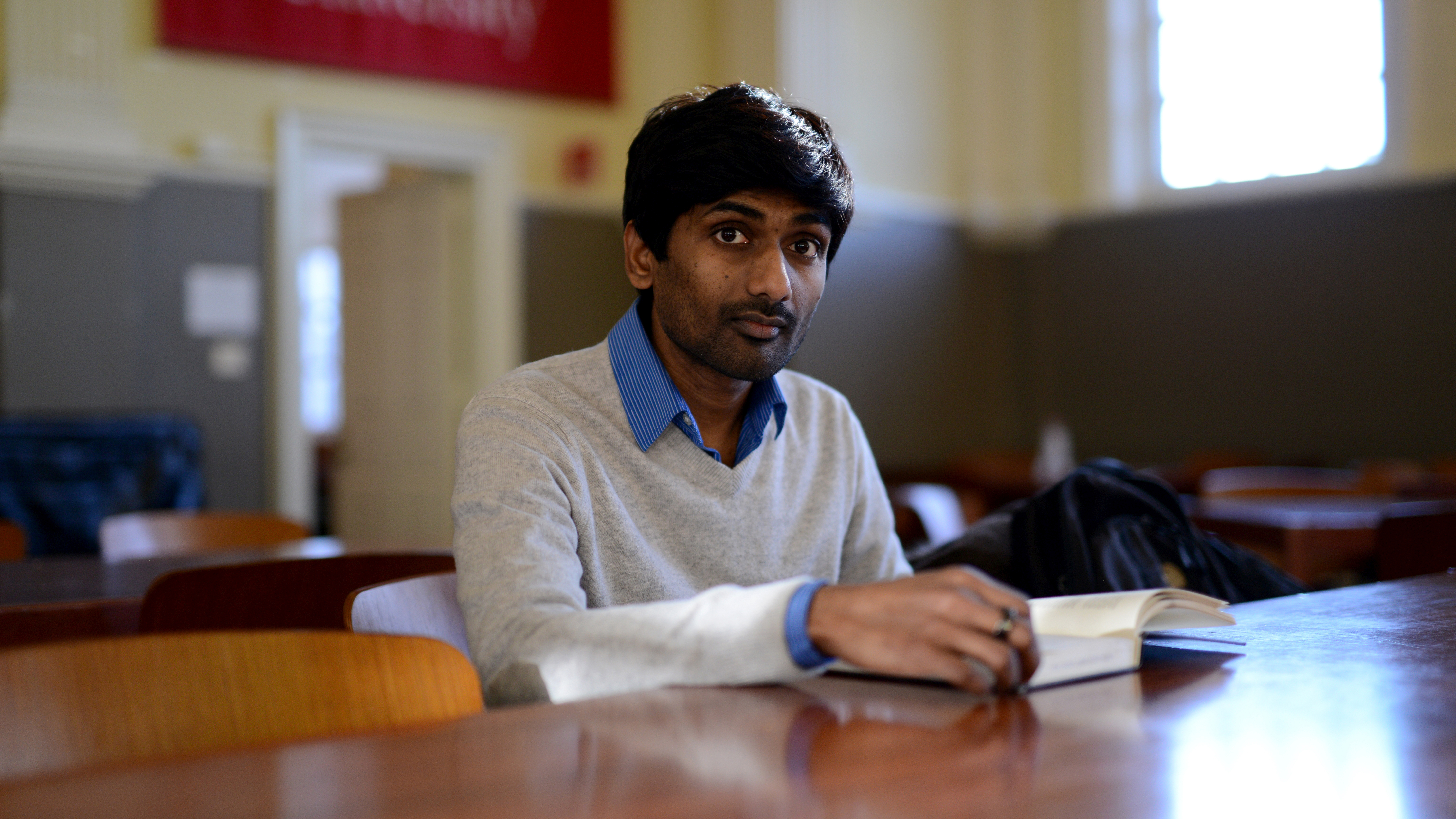The US isn’t safe from the trauma of caste bias
Kanishka Elupula is a doctoral student in anthropology at Harvard University.
This article is part three of the “Caste in America” series. Read parts one and two. This series was supported with funding from the Pulitzer Center and produced in partnership with WGBH.
Dalits from India, formerly known as “Untouchables,” say the caste system and the perception of Dalits as the lowest of the low have followed them to America.
The stigma attached to caste — the traditional religious and social hierarchy of Hinduism — is so deep that most Indians in the country, especially Dalits, refuse to talk about it. Dalits who do talk about it say the kind of caste-based discrimination and violence that erupts in India exists in the US, as well.
A 2018 survey of 1,200 individuals of South Asian descent in the United States found that 26 percent said they had experienced a physical assault because of their caste, while 59 percent reported caste-based derogatory jokes or remarks directed at them. More than half said they were afraid of being outed as Dalit. The survey is the only one of its kind ever done.
In 2003, only 1.5 percent of Indian immigrants in the United States were Dalits or members of lower castes, according to the Center for the Advanced Study of India at the University of Pennsylvania. More than 90 percent were from high or dominant castes. About 2.5 million people of Indian descent live in the US, including those born here.
Upper caste Hindu leaders suggest problems with caste bias are confined to recent immigrants, rather than US-born Indian Americans, or deny that any institutional discrimination against Dalits occurs in America.
That has not been the experience of Preeti Meshram, a Dalit woman who lives in the Northeast. She did not provide her real name because she is afraid of reprisals from upper caste Hindus. Some identifying details of her story have been omitted.
“Every time I speak to someone, they have these deep, personal and traumatic stories and actually have no way of telling them because they are so scared,” Meshram says of many Dalits in America. “I understand that fear. It’s a fear of like, ‘We’re supposed to be good here and if we can’t be good here, then where can we be at peace?’ And so there are tendencies to hide it and not talk about it, just pretend that everything is going okay.”
Related: Even with a Harvard pedigree, caste follows ‘like a shadow’
Meshram came to the United States, against her family’s wishes, to earn a doctorate at a New England college. She said she thought life would be better in this country, but she quickly encountered the same kind of discrimination she had experienced in India.
“And they went around the room with each person saying what their caste was and they skipped over me because they felt so uncomfortable to ask me that question because they just knew I was from a lower caste.”
“We were at these parties with all the newly-admitted kids from India, and everybody just went around the room asking each other, like, ‘What’s your caste?’ And 90 percent of the people in that room were Brahmins, except for me and one other student, who was also upper caste,” Meshram recalls. “And they went around the room with each person saying what their caste was and they skipped over me because they felt so uncomfortable to ask me that question because they just knew I was from a lower caste.”
Asking fellow students their caste, Dalits say, establishes status and hierarchy within the community. Doing so often means that a Dalit or lower caste person will be isolated from upper caste peers.
Related: Does America have a caste system?
Meshram tells another story more traumatic than being shunned. Not long after she arrived at the college, she says she was raped by an upper caste Indian student. There is no doubt in her mind that caste motivated the assault.
“From the very first day, how he behaved towards me was a kind of behavior that you observe landlords behaving towards the women who work in their fields, the Dalit women, especially, who work in their fields — which is an attitude of ownership and entitlement over their bodies and their time and their labor,” she says.
When Meshram told her upper caste roommate what had happened, the woman scoffed at her in disbelief. Traumatized and with no moral support, Meshram did not report the assault, which cannot be independently verified.
The survey released in Cambridge, Massachusetts, last March also contains personal anecdotes about discrimination and isolation at schools, workplaces, temples and within communities. A US based Dalit-led research organization called Equality Labs conducted the online survey.
“… when we finally got the numbers from our survey, we were just utterly shocked.”
“It establishes without any question that caste truly does operate in American institutions across the country,” says Thenmozhi Soundararajan, a Dalit activist who is executive director of Equality Labs. “While we’d always had anecdotal information … when we finally got the numbers from our survey, we were just utterly shocked.”
The survey was anonymous and not based on a random sample. Some Indian American leaders have criticized its methods and findings.
For instance, Suhag Shukla, executive director of the Hindu American Foundation in Washington, DC, questions whether generational differences were taken into account.
“Were these people who had been in the country for only five years, meaning they had just recently come from India, and may have carried over certain social stigma or baggage and were continuing to live their lives through that lens?” Shukla asks. “Or was it someone like me, who was born and raised here, for whom caste is not relevant?”

As the number of Dalit and lower caste people grows in the United States, they are beginning to assert their rights and raise their voices. At the World Hindu Congress in Chicago last September, a group of Dalit activists disrupted a session to protest what they saw as the Brahmin superiority of the event and the presence of extremist Hindu leaders, including Mohan Bhagwat, leader of Rashtriya Swayamsevak Sangh, an extremist Hindu group in India. The women protesters were attacked and spat on by attendees.
S.P. Kothari, chairman of the World Hindu Congress and a professor of accounting and finance at MIT’s Sloan School of Management, denies that Hindus are socially or politically divided by caste in the United States.
“Is there any institutional or is there an organizational or religious way to try and drive a wedge between the Dalits and the upper castes? And the answer is categorically no,” Kothari says. “We certainly would not want anyone to be mistreated, and I also think that the social approach is important to complement the legislative approach that we observe.”
Related: Indians in America adrift from caste
Dalits interviewed by WGBH News or surveyed by Equality Labs indicated they do not inhabit such a comfortable, accepting space when among others of Indian descent.
Kanishka Elupula, an Indian working on his doctorate at Harvard University, expressed a sense of Dalit pride.
“When I’m at Harvard I actually want to be recognized as an ‘Untouchable,’ because I want people to know.”
“When I’m at Harvard I actually want to be recognized as an ‘Untouchable,’ because I want people to know,” Elupula says.
But despite how proud he is of his success, Elupula is reluctant to openly talk about his caste on campus.
“My achievement is that I happen to be somebody who was beaten up and abused and made to feel like crap because I come from this caste. So the fact that I’m an ‘Untouchable’ and I’m here is what I want people to recognize,” he says. “But then again, I don’t want to go around telling people. So like I said, I have not been forthright about my caste. It’s not that I’ve actively tried to hide it, which kind of shows that there is still that stigma, there’s that worry that I’ll be found out and thought that I’m somehow inferior,” he says.
“That’s kind of seeped into an almost subconscious level now … because I’ve seen so many times when you talk about it and that’s it,” Elupula says. “The conversation usually ends there, and then people start avoiding you or they see you as not reasonable when you support the causes you support,” like affirmative action for Dalits and lower caste people in India.
Related: Love conquers caste for this couple, but Indian marriage traditions continue in US
This kind of internal conflict is not uncommon among many Dalits living in America. They are proud that despite generational discrimination back in India, they have escaped to this country. But they worry that by exposing themselves as a lower caste person they will face derision or isolation from upper caste communities.
Not talking about their caste is just one way to avoid facing discrimination in America, said Jaspreet Mahal, a researcher at Brandeis University who is married to a University of Massachusetts Boston doctoral student who belongs to the Dalit community.
“It’s exclusion and it’s self-exclusion,” Mahal said. “We won’t go to a place where we feel we won’t be comfortable, or [where] we cannot speak our minds. So in that sense, we stick to the community whom we are comfortable with. My husband likes to call it ‘politics of silence.’”
This article is part three of the “Caste in America” series. Read parts one and two.
